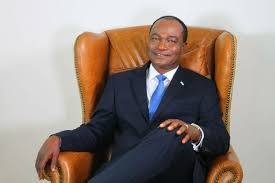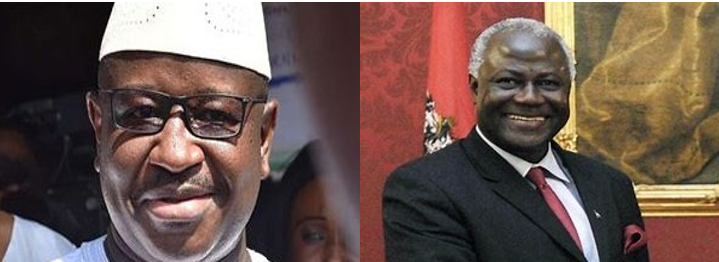African elections: the good, the bad, and the rest
Until two decades ago football games were the most heated contests in most of Africa. Then came the era of competitive elections. From the beginning, the electoral game topped the charts. And much like football amateurs would tell you about the many games they watch, some elections deserve good grades, others merit bad ones, most lie in the middle. Photo: Counting votes after the 2006 election in the Democratic Republic of the Congo: While some post-war elections help entrench democracy, others may mark a continuation of “war by other means.” Photograph: UN Photo / Kevin Jordan)
In March Benin held its fifth round of competitive national elections since 1991. The incumbent president, Yayi Boni, won a second term in office and his party maintained its dominance in parliament. Much as in Ghana, Mali, Senegal, Mauritius, Botswana and South Africa, elections in the tiny West African nation, once prone to military coups, have come to embody the best trend on the continent.
These countries have many things in common, including an active civil society, a vibrant and free press, an independent electoral body, a competitive political landscape and a widely shared respect for the rule of law. Rarely do violent protests precede or follow the proclamation of election results. Peaceful handovers of power following an opposition victory are not uncommon. “These political systems are a result of a long and negotiated compromise among the elites,” observes Achille Mbembe, a political scientist at the University of the Witwatersrand in Johannesburg, South Africa.
Other elections, however, point to a different trend. True to the words of a former president of the Republic of Congo, Pascal Lissouba, who once professed that “one does not organize elections to end up on the losing side,” such contests are mainly window-dressing exercises aimed at legitimizing the status quo. They often occur in countries where the same leaders have been in power for a decade or more. Just months ago, before popular uprisings in Tunisia and Egypt ousted strongmen from office, most elections in North Africa belonged in this category.
There are currently some 10 countries in sub-Sahara Africa with leaders who have been in power for more than 20 years, says Almamy Cyllah, the Africa director for the International Foundation for Electoral Systems (IFES), a think-tank based in Washington, DC. These leaders’ electoral victories are achieved in various ways, including “by suppressing or banning opposition parties, acting in such a way that opposition parties boycott the election altogether, monopolizing state resources or media, intimidating voters or conducting outright fraud.”
Such scenarios will probably be repeated in upcoming elections. “In all likelihood, most of these countries will not experience political change or viable elections in the near future — perhaps not until the death of their current rulers and possibly not even then,” Mr. Cyllah told Africa Renewal. In such countries, adds Mr. Mbembe, “The rulers and their supporters have been able to control the pace of change. They have designed the rules to maintain their grip on the state and the economy, while allowing insignificant reforms.”
In the grey area between these two extremes lie a majority of African elections. Nigeria’s latest round of voting, in April, although tainted by all-too-familiar instances of fraud and violence in a few regions, won some praise. Analysts maintain that the election that saw a victory for President Goodluck Jonathan was the cleanest the country has ever seen.
In this case, as in many more across Africa, some of the vital elements required for a free and fair contest were missing. Long histories of vote-rigging, a lack of institutional experience and the weakness of the free and independent media continuously threatened the processes. Yet the determination of certain key actors (including, in the case of Nigeria, the head of the national electoral commission) helped achieve a breakthrough.
The grey middle ground is also populated by elections held soon after the end of civil wars. In the past decade, as many African conflicts have drawn to a close several post-conflict elections have taken place. So far the results have been mixed.
“Now what this category of countries needs is to build on the gains they’ve made in such difficult circumstances,” urges Akinyemi Adegbola, an expert in electoral assistance at the UN Department of Political Affairs in New York.
Given the many weaknesses of these countries’ systems, the fierce competition that often marks their elections can sometimes lead to unrest and violent conflicts. “Competitive elections have not always turned out well in Africa,” remarks Mwangi Kimenyi, a senior fellow at the Brookings Institution, a US think-tank. “In Kenya, Zimbabwe and Côte d’Ivoire, elections have tended to weaken the institution, with claims of rigged and stolen elections,” he argues. “In these and other cases, elections have actually further polarized ethnic groups and led to violent conflicts.”
Despite the difficulties, the fact that competitive elections are no longer rare in Africa is a positive development. Yet Mr. Mbembe of the University of the Witwatersrand has regrets: “Elections have become the most direct trigger of violence in Africa. Far too often, they divide people and cause destruction of lives and properties.” True, concedes Mr. Cyllah, “Elections are often marred by fraud or incompetence and do sometimes result in violence.” But, he insists, “No other means have brought about non-violent transitions of power with the same consistency.”
Efforts are under way to improve electoral contests across the continent. Over the past decade in particular, independent electoral commissions have become a standard feature, remarks Mr. Adegbola. The UN Development Programme and international non-governmental organizations have been supporting the creation of such commissions. They have also trained local observers, assisted in voter registration, vote monitoring and tallying, and worked with civil society groups.
Despite the central importance of elections in building and solidifying democratic societies, analysts point out, their quality depends on progress in other areas as well.
Beyond such issues, Mr. Mbembe advocates a wider use of proportional representation in African elections. Such an arrangement, he argues, can bring more peaceful transitions by lowering incentives for protest and violence from those most afraid to lose. In such arrangements, unlike in football games, victory will cease to mean that the winner takes all.
By André-Michel Essoungou
Published in collaboration with Africa Renewal www.un.org/africarenewal
Stay with Sierra Express Media, for your trusted place in news!
© 2011, https:. All rights reserved.






